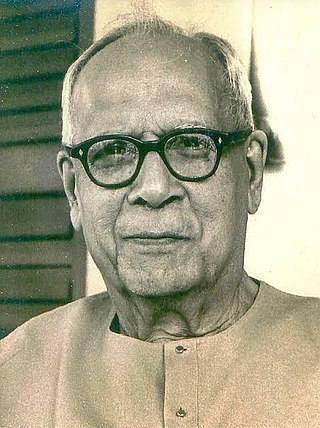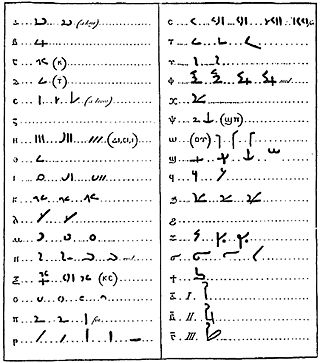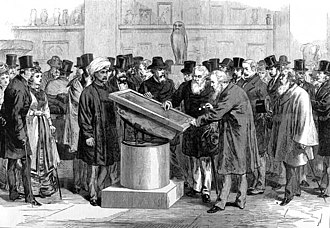
Sir Hamilton Alexander Rosskeen Gibb, known as H. A. R. Gibb, was a Scottish historian and Orientalist.

Ramesh Chandra Majumdar was a historian and professor of Indian history. Majumdar is a noted historian of modern India. He was a former Sheriff of Kolkata.

Johan David Åkerblad was a Swedish diplomat and orientalist.

Moriz Winternitz was a scholar from Austria who began his Indology contributions working with Max Müller at the Oxford University. An eminent Sanskrit scholar, he worked as a professor in Prague in the German part of Charles-Ferdinand University after 1902, for nearly thirty years. His Geschichte der indischen Literatur, published 1908–1922, offered a comprehensive literary history of Sanskrit texts. The contributions on a wide range of Sanskrit texts by Winternitz have been an influential resource for modern era studies on Hinduism, Buddhism and Jainism.

Peter Benjamin Golden is an American historian who is "professor emeritus" of History, Turkish and Middle Eastern Studies at Rutgers University. He has written many books and articles on Turkic and Central Asian studies, such as An introduction to the history of the Turkic peoples.

Sir George Abraham Grierson was an Irish administrator and linguist in British India. He worked in the Indian Civil Service but an interest in philology and linguistics led him to pursue studies in the languages and folklore of India during his postings in Bengal and Bihar. He published numerous studies in the journals of learned societies and wrote several books during his administrative career but proposed a formal linguistic survey at the Oriental Congress in 1886 at Vienna. The Congress recommended the idea to the British Government and he was appointed superintendent of the newly created Linguistic Survey of India in 1898. He continued the work until 1928, surveying people across the British Indian territory, documenting spoken languages, recording voices, written forms and was responsible in documenting information on 179 languages, defined by him through a test of mutual unintelligibility, and 544 dialects which he placed in five language families. He published the findings of the Linguistic Survey in a series that consisted of 19 volumes.

Sir Ramakrishna Gopal Bhandarkar, was an Indian scholar, orientalist, and social reformer.

Laura Veccia Vaglieri (1893–1989) was an Italian orientalist who made significant contributions to Arabic and Islamic studies in Italy. She was a scholar and served as a professor at the University of Naples "L'Orientale". Her research focused on the historical and institutional analysis of the Arab and Muslim world, and she authored several books on these topics. Additionally, Veccia Vaglieri wrote numerous articles on early Islam and on Ibadism. Her work also included contributions to the Encyclopaedia of Islam and the history of research on Ibāḍī studies.

Robert Chalmers, 1st Baron Chalmers, was a British civil servant, and a Pali and Buddhist scholar. In later life, he served as the Master of Peterhouse, Cambridge.
Sir Godfrey Rolles Driver, known as G. R. Driver, was an English Orientalist noted for his studies of Semitic languages and Assyriology. He is considered the "most distinguished British Hebraist of the late nineteenth and early twentieth centuries".
The World Congress of Philosophy is a global meeting of philosophers held every five years under the auspices of the International Federation of Philosophical Societies (FISP). First organized in 1900, these events became firmly established after the Second World War. Each World Congress is sponsored by one of the member societies in a different country, which assumes responsibility for the organization of that Congress. The purpose of these events is to contribute to the development of professional relations between philosophers of all countries, promote philosophical education, and contribute to the impact of philosophical knowledge on global problems. The 24th World Congress of Philosophy was held in Beijing in August 2018. The 25th World Congress of Philosophy will take place in Rome in 2024.
A peace congress, in international relations, has at times been defined in a way that would distinguish it from a peace conference, as an ambitious forum to carry out dispute resolution in international affairs, and prevent wars. This idea was widely promoted during the nineteenth century, anticipating the international bodies that would be set up in the twentieth century with comparable aims.

Henri Cordier was a French linguist, historian, ethnographer, author, editor and Orientalist. He was President of the Société de Géographie in Paris. Cordier was a prominent figure in the development of East Asian and Central Asian scholarship in Europe in the late 19th and early 20th century. Though he had little actual knowledge of the Chinese language, Cordier had a particularly strong impact on the development of Chinese scholarship, and was a mentor of the noted French sinologist Édouard Chavannes.
Mansel Longworth Dames (1850–1922) was a scholar of oriental and Portuguese languages.

Martijn Theodoor Houtsma, often referred to as M. Th. Houtsma, was a Dutch orientalist and professor at the University of Utrecht. He was a fellow of the Royal Netherlands Academy of Arts and Sciences, and a leading expert on the history of the Seljuks. He remains best known for his work as editor of the first edition (1913–38) of the standard encyclopedic reference work on Islam, the Encyclopaedia of Islam.
Paul Wittek was an Austrian Orientalist and historian. His 1938 thesis on the rise of the Ottoman Empire, known as the ghazi thesis, argues that the driving force behind Ottoman state-building was the expansion of Islam. Until the 1980s, his theory was the most influential and dominant explanation of the formation of the Ottoman Empire.
Richard Bertram Whitehead, usually cited as R. B. Whitehead, was a British numismatist and an authority on Indian coins. He played "a major role in establishing the study of coinage as an essential technique of Indian historical research", for which he received numerous awards and honours, and was the first Honorary Fellow of the Numismatic Society of India.

Olga Lebedeva was a translator, linguist and Orientalist from the Russian Empire. She was a founder of the Society of Oriental Studies in St Petersburg. Writing as Madame Gülnar, Gülnar Hanım, Gülnar Lebedeva and Olga de Lebedeff, she was one of the first to introduce Russian literature to Turkey. She is recognised for her pioneering contributions to the literary networks between the Ottoman and the Russian empires at the end of the 19th century.

Betty Heimann was the first woman Indologist to habilitate in Germany. After the Nazis banned Jews from holding academic positions in Germany in 1933, she taught at the University of London and became a British citizen. After the end of World War II she founded the Department of Indian Philosophy and Sanskrit at the University of Ceylon.

The First International Statistical Congress was held on September 19, 1853 in Brussels, Belgium, with twenty-six countries in attendance. It was principally organised by Belgian astronomer and statistician Adolphe Quetelet, who envisioned a standardisation of European units of measurement to allow for collaborative research to be done between nations. The International Statistical Congress was therefore designed to create tentative guidelines for the process of unifying measurement in statistical research, and it was also aimed to establish leadership and regulations for future congresses. Although the First Congress was followed by seven further sessions across Europe between 1853 and 1876, it was unsuccessful in its initial goals to standardise all measurements across nations, as it occurred at a time when international conferences failed to overcome national interests.















